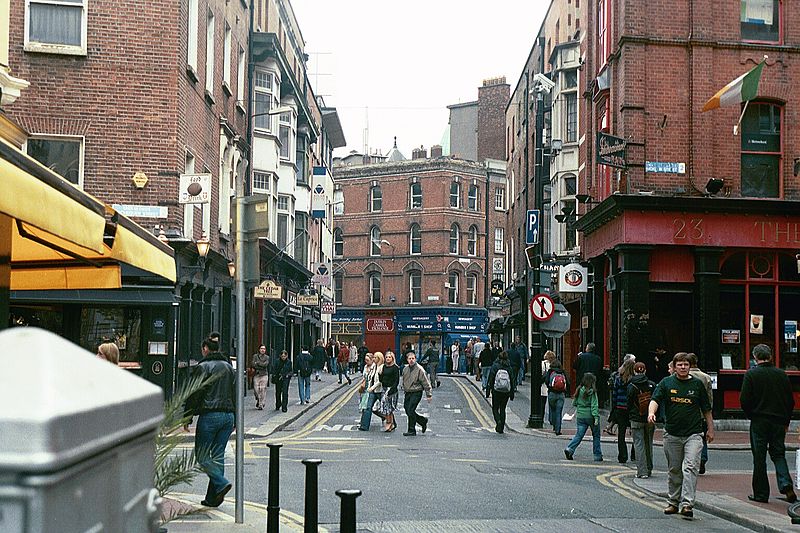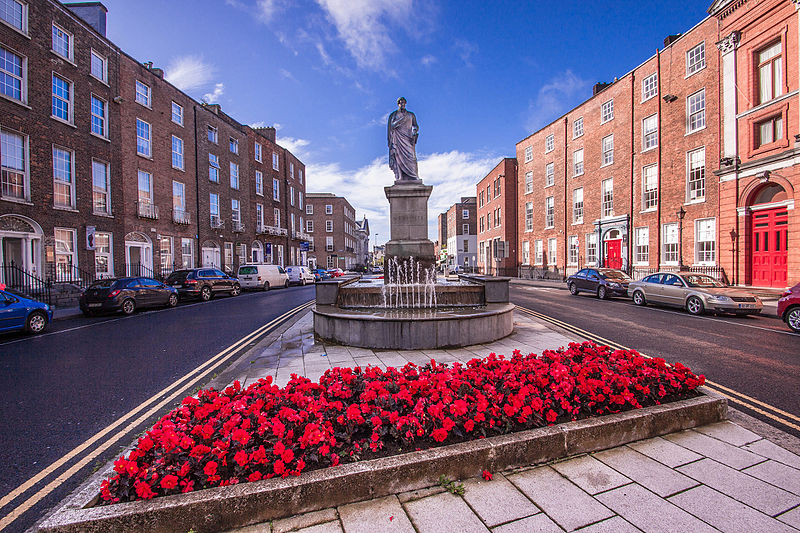Is Dublin expensive?
Dublin, The Republic of Ireland’s bustling capital, is renowned for its fascinating history, beautiful buildings, and exciting culture.
If you’re thinking about visiting or relocating to this busy metropolis, it’s important to familiarize yourself with the financial details so that your stay goes smoothly and without breaking the bank.
Today, we’ll learn more about the travel and living expenses in Dublin, how they stack up against those of other Irish cities, and get some helpful tips on how to cut expenses while you’re there.
Things you'll find in this article
- Is Dublin Expensive? What You Need To Know (2023)
- Travel Costs in Dublin
- Cost of Living in Dublin
- Dublin Compared to Other Cities in Ireland
- Money-Saving Tips When in Dublin
- 1. Visit during the off-season like the spring or the end of summer.
- 2. Spend as little as possible on transportation.
- 3. Take advantage of free museums, galleries, and libraries.
- 4. Enjoy a meal in one of Dublin’s many affordable restaurants
- 5. Going to a pub? Acquaint yourself with the half-pint and keep the extra money.
- Conclusion
Is Dublin Expensive? What You Need To Know (2023)
Related Read:
- Renting In Dublin – Guide For Newcomers
- Living In Dublin: The Ultimate Guide For Expats
- Where To Stay in Dublin, Ireland
- 30 Best Things To Do In Dublin, Ireland (For 2024)
- 11 Must-See Castles In Dublin, Ireland
- Top 10 Gardens and Parks in Dublin To Visit
- 12 Best Bookstores in Dublin
Both visiting and living in Ireland can put a significant dent in your wallet. However, the total amount may differ from person to person based on factors including where in the country they live, their preferred way of life, and other things.
Visiting Ireland can be pricey, especially during peak season. The bulk of a trip’s budget will likely go toward lodging, travel, and restaurants.
Cities like Dublin, which attract many tourists, may charge more than more remote regions. The total can be affected by the exchange rate between your currency and the euro.
The cost of living in Dublin can also be quite high. Housing is expensive in general, whether you’re looking to buy or rent, but especially so in Dublin. Things like rent, food, medical care, and gas for the car may all add up quickly.
However, it is partially balanced by the fact that earnings and wages in Ireland are generally greater than in several other European countries.
The total cost of a trip to or living in Ireland is determined by the person’s spending habits, and preferred lodging, dining, and entertainment options, among other factors. Make sure you do your research and make a detailed strategy for your budget before making any major purchases.
Travel Costs in Dublin
Dublin costs approximately €70 to €110 per day for tourists on a budget. These costs reflect what a traveler on a budget will need to visit the city in comfort.
Depending on which area you stay, upgrading your lodging will cost an additional €80 to €120 per night. These costs also do not include bar/pub crawls, club entry fees, tours, random purchases, etc.
Don’t forget to budget extra money for “non-essentials” such as souvenirs, full pints every pub visit, entrances to popular attractions, etc.
Cost of Living in Dublin

Dublin has a monthly cost of living of between €1,400 to €1,700. This city has a higher-than-average cost of living when it comes to lodging. Apartments in Dublin can be rented for between €1200 and €1600 per month.
Rooms in shared apartments can be had for as little as €450 per month, while private rooms can be had for €600 to €800.
Meanwhile, a month’s worth of food in Dublin might cost anything from €206 to €526 on average for a single person.
A public transportation ticket in Dublin can cost anywhere from €2 to €5, depending on the mode of transportation used and the length of the trip.
Also, you should be aware that the expense of entertainment in Dublin is significantly higher than in other cities. Budget at least €55 per month for going out to bars, movies, etc.
Related Read: Renting In Dublin: Guide For Newcomers
Dublin Compared to Other Cities in Ireland
Dublin vs Cork
The daily cost of living (per person) in Dublin is estimated to be €140, whereas the daily cost of living in Cork is estimated to be €101. These numbers already cover accommodations, food experiences, the cost of transportation, and leisure.
Even though each person is unique, these prices are based on the average experience of prior tourists who visited each location.
Dublin vs Galway
Galway has a lower daily cost (per person) of €119 than Dublin does (€140). Accommodation, sights, and beverages are all less expensive in Galway than in Dublin.
However, Galway can be a bit similar to Dublin in terms of expenses like food. Dublin has a stronger infrastructure, thus travel costs, including flights, are lower there.
Dublin vs Limerick
Whether you’re a tourist or a local, Dublin will cost you more than Limerick City. Dublin has greater average daily costs than Limerick City. Limerick has a daily cost of €108 compared to Dublin’s €140 per person.
This is based on 2024 data, when expenses in several areas, including lodging, food, transportation, and entertainment, have increased.
However, Limerick City has a lower overall cost of living than the rest of Ireland, with cheaper housing, food, and other necessities.
Dublin vs Belfast
Since one city uses pounds while the other uses euros, it is significantly more cost-effective to travel to Belfast.
Consumer prices, for instance, are 15% lower in Belfast than they are in Dublin, while the cost of food is 11% lower in Belfast.
When it comes to lodging, going out to eat, and visiting attractions, the costs in Dublin are unquestionably much higher than those in Belfast.
On the other hand, in Belfast, the costs are lower, and for your money, you get greater value.
Money-Saving Tips When in Dublin
1. Visit during the off-season like the spring or the end of summer.
Dublin’s weather tends to be most pleasant during the months of late August through early October, which fall within the city’s “shoulder season.”
September, when schools reopen after the summer break, is typically the most cost-effective month for vacationers.
Visit before or after popular dates like St. Patrick’s Day (middle of March) and the weeks leading up to Christmas (December) to get the most out of your euro.
2. Spend as little as possible on transportation.
While taking a taxi may seem like the easiest and quickest method to get around Dublin, it may also quickly drain your wallet.
You may save money by riding the bus instead of a cab. The bus system in Dublin is convenient and cheap, with stops in every part of the city.
Alternatively, Dublin Bikes, the city’s bike share program, is a low-cost and convenient option for getting around town.
Keep in mind that Dublin is quite compact and easy to explore on foot.
3. Take advantage of free museums, galleries, and libraries.
The city of Dublin is fortunate to have many museums and libraries that are entirely free to the public.
On your next vacation to Dublin, be sure to check out some of these free museums, galleries and libraries that Dublin has to offer, which are listed below:
- The National Gallery of Ireland The National Museum of Ireland
- The Irish Museum of Modern Art
- The Hugh Lane Gallery
- The Chester Beatty Library
- The National Library of Ireland
4. Enjoy a meal in one of Dublin’s many affordable restaurants
Dublin unquestionably has a reputation for being an expensive city, and food is no exception. When you visit Dublin, keep these money-saving suggestions in mind to make your trip a little easier on your wallet.
- Consume a hearty meal before you get started with your day exploring Dublin. Have full Irish breakfast if your hotel has it.
- The need for lunch will be reduced if you refuel in the morning rather than waiting until later in the day. If you have to eat during the middle of the day, bring some snacks or a lunch that doesn’t require much preparation with you.
- Take advantage of the early bird offers that can be found in a lot of different restaurants in Dublin. To take advantage of the discount, you must ensure that you arrive at the location at the specified time.
5. Going to a pub? Acquaint yourself with the half-pint and keep the extra money.
Dublin does not have “happy hours” or any other type of discounted alcohol pricing. However, you can order a half pint instead of a full one to cut down on beer spending. This will allow you to patronize a wider variety of bars.
Remember that there is no requirement to tip the bartender so make sure you place an order with them. You get to. keep every last cent!
Conclusion
Whether you’re just visiting or hoping to make Dublin your new home, it’s important to know what to expect financially.
We hope this quick guide gives you the knowledge you need to make educated decisions and enjoy Dublin to the fullest without overspending.
By examining travel and living expenditures, comparing Dublin with other cities in Ireland, and providing money-saving recommendations, we hope you now have a better idea on how to better manage your trip to Ireland.

Hi, I’m Christine – a full-time traveler and career woman. Although I’m from the Philippines, my location independent career took me to over 60 countries for the past 12 years. I also lived in 4 continents – from the Caribbean, South East Asia, Africa and now in Europe. But despite living in several countries, my love for Ireland remains the same. A country that had been a part of my life since I was 14 because of my love for Irish music and bands. Ireland Travel Guides was born because of this passion and hopefully, in some little ways, this website will be able to help you on your next trip to Ireland.




